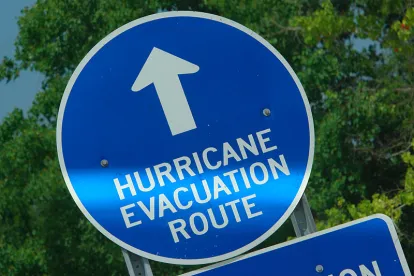Spring is here, which means natural disaster season is here as well. While spring brings a welcome change in the weather in many areas of the country, it often also brings floods, tornados, hurricanes and other disasters that can cause substantial property damage and business disruption. Now is a good time for policyholders to make sure they are as prepared as they can be in the event of an unexpected property loss. Addressing a few basic but sometimes overlooked issues before being thrust into the chaotic aftermath of a natural disaster can go a long way toward making the insurance recovery process more efficient.
-
Review and understand your policies. Do you know where to find your company’s property insurance policies when you really need to access them? Although this sounds simple, for some businesses their insurance policies become an afterthought once they receive copies after an annual renewal. Insurance policies contain important information about what the insurance company purports to require in the event of a claim.It is critical that policyholders be able to quickly locate and review their insurance policies after a loss occurs. Once located, someone must read and understand the policies. Commercial insurance policies are highly complex documents, but it is important to be able to quickly grasp how the coverage might apply to your particular loss situation.
-
Who is responsible for dealing with the insurance claim? Many companies have dedicated risk management personnel who know it will be their responsibility to communicate with insurers after a loss. For companies without a risk management department, however, roles and responsibilities for dealing with insurance issues after a loss can be less clear. Deciding before a loss occurs who will be charged with the duty to communicate with insurers, insurance brokers, claims adjusters or insurance coverage counsel can avoid unnecessary confusion and delays.
-
Give notice as early as possible. It may take several days or sometimes even weeks to determine the full scope of the loss caused by a natural disaster. It may take the same amount of time or longer to determine exactly how the coverage applies to the loss once it has been fully ascertained. Even so, keep in mind that certain insurance companies will take the position that they do not have to cover the claim on the basis that notice was late. To avoid such posturing, make every effort to notify the company’s insurance carriers of the loss as soon as reasonably possible under the circumstances. An unreasonable delay in providing notice potentially can lead to frustrating disputes with insurers that have nothing to do with the actual substance of the coverage provided by the policies.
-
Understand the role of the claims adjuster. Your property insurer will appoint an adjuster to handle your claim. Many times, these adjusters are not insurance company employees but instead are from so-called “independent” adjusting firms. These “independent” adjusters, however, are still hired by (and paid by) the insurers. They work for the insurers and perform loss adjustment services for the same insurers over and over again. Their loss estimates, therefore, should never be treated as true “independent” assessments of the value of a loss. Policyholders should conduct their own review of the adjuster’s loss estimate, and should consult with appropriate experts to make sure the estimate addresses the entire scope of the damage. Disputes often arise because an insurer recommends patchwork, ineffective repairs even when their policies require them to do more. Do not rush or feel compelled to accept repair estimates provided by the insurer or its adjuster without confirming that the nature of repairs being proposed actually will address the damage and will not cause further problems later.
-
Be prepared to track expenses and income losses. Dealing with the aftermath of a disaster likely will give rise to an immediate need to incur expenses beyond those associated with normal business operations. Having a system in place from the outset to track these expenses will make claim preparation easier in the long run. Similarly, a disaster may disrupt a company’s ability to conduct business, impairing the usual flow of revenue. Here again, early efforts to track and document how and why property damage has caused an interruption in business income will help greatly when it comes time to prepare the business interruption component of a property damage claim.
This is just a small sampling of the many insurance-related issues policyholders must deal with – often in a short time frame and under high stress – after suffering property damage in a natural disaster. If no advance thought has been given to how the early stages of the claim process will be addressed, confusion and delay may result. A little preparation can go a long way toward making the claims process run more smoothly when a natural disaster does occur.



 />i
/>i

